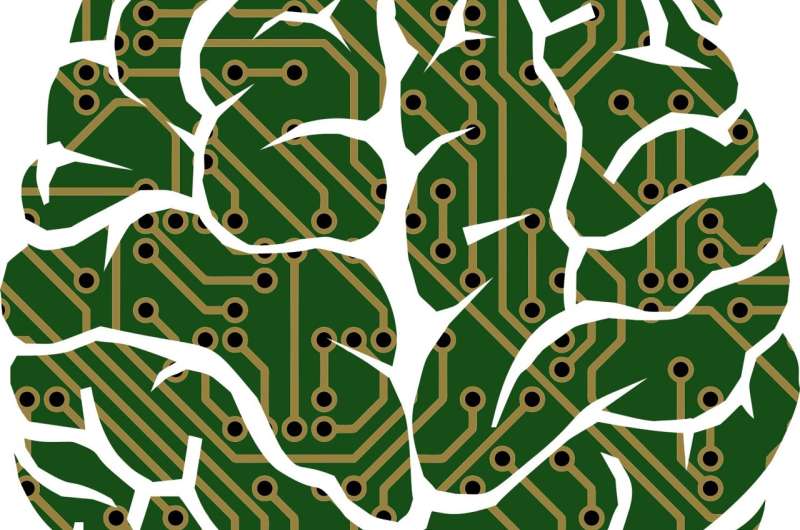
Memories can be as tricky to hold onto for machines as they can be for humans. To help understand why artificial agents develop holes in their own cognitive processes, electrical engineers at The Ohio State University have analyzed how much a process called “continual learning” impacts their overall performance.
Continual learning is when a computer is trained to continuously learn a sequence of tasks, using its accumulated knowledge from old tasks to better learn new tasks.
Yet one major hurdle scientists still need to overcome to achieve such heights is learning how to circumvent the machine learning equivalent of memory loss—a process which in AI agents is known as “catastrophic forgetting.” As artificial neural networks are trained on one new task after another, they tend to lose the information gained from those previous tasks, an issue that could become problematic as society comes to rely on AI systems more and more, said Ness Shroff, an Ohio Eminent Scholar and professor of computer science and engineering at The Ohio State University.
“As automated driving applications or other robotic systems are taught new things, it’s important that they don’t forget the lessons they’ve already learned for our safety and theirs,” said Shroff. “Our research delves into the complexities of continuous learning in these artificial neural networks, and what we found are insights that begin to bridge the gap between how a machine learns and how a human learns.”
Researchers found that in the same way that people might struggle to recall contrasting facts about similar scenarios but remember inherently different situations with ease, artificial neural networks can recall information better when faced with diverse tasks in succession, instead of ones that share similar features, Shroff said.
The team, including Ohio State postdoctoral researchers Sen Lin and Peizhong Ju and professors Yingbin Liang and Shroff, will present their research later this month at the 40th annual International Conference on Machine Learning in Honolulu, Hawaii, a flagship conference in machine learning.
While it can be challenging to teach autonomous systems to exhibit this kind of dynamic, lifelong learning, possessing such capabilities would allow scientists to scale up machine learning algorithms at a faster rate as well as easily adapt them to handle evolving environments and unexpected situations. Essentially, the goal for these systems would be for them to one day mimic the learning capabilities of humans.
Traditional machine learning algorithms are trained on data all at once, but this team’s findings showed that factors like task similarity, negative and positive correlations, and even the order in which an algorithm is taught a task matter in the length of time an artificial network retains certain knowledge.
For instance, to optimize an algorithm’s memory, said Shroff, dissimilar tasks should be taught early on in the continual learning process. This method expands the network’s capacity for new information and improves its ability to subsequently learn more similar tasks down the line.
Their work is particularly important as understanding the similarities between machines and the human brain could pave the way for a deeper understanding of AI, said Shroff.
“Our work heralds a new era of intelligent machines that can learn and adapt like their human counterparts,” he said.
More information:
Theory on Forgetting and Generalization of Continual Learning. newslab.ece.ohio-state.edu/res … eizhong_icml2023.pdf
Citation:
Future AI algorithms have potential to learn like humans, say researchers (2023, July 20)
retrieved 20 July 2023
from https://techxplore.com/news/2023-07-future-ai-algorithms-potential-humans.html
This document is subject to copyright. Apart from any fair dealing for the purpose of private study or research, no
part may be reproduced without the written permission. The content is provided for information purposes only.
Stay connected with us on social media platform for instant update click here to join our Twitter, & Facebook
We are now on Telegram. Click here to join our channel (@TechiUpdate) and stay updated with the latest Technology headlines.
For all the latest Technology News Click Here
For the latest news and updates, follow us on Google News.
